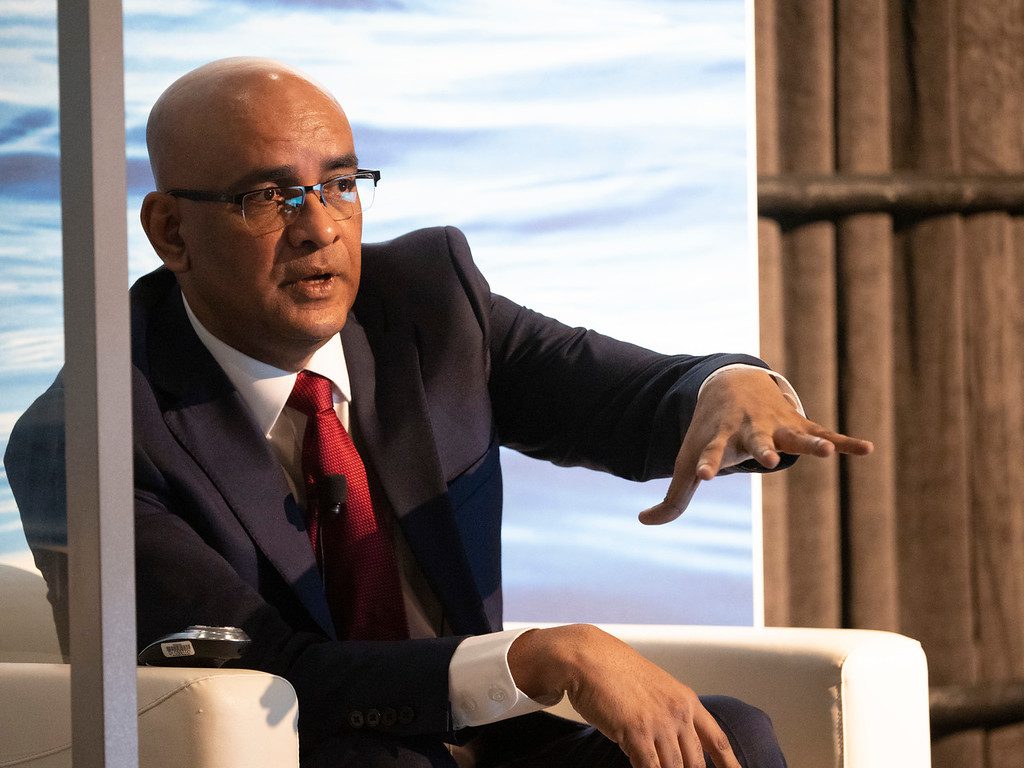Guyana’s Vice President, Dr. Bharrat Jagdeo says there are several reasons why the institution of a US$50 per tonne payment for flaring of carbon dioxide should not be dismissed as nominal. For one, it represents a move from no payment whatsoever. Another reason is that Guyana is one of the few countries that sets its flaring payment based on the level of emission. Further, the existence of this payment makes the oil and gas sector the only one in Guyana that attracts a carbon tax.
The Vice President made these remarks during a press conference on Wednesday. He referenced criticism leveled against the government’s increase of the fee from US$45 to US$50, when it renewed the Liza Phase 1 Environmental Permit at the end of May.
Dr. Jagdeo highlighted, “They keep saying that we did a marginal change by moving it from US$45 per tonne to US$50 per tonne of carbon emitted. They say we missed an opportunity.” He said however that there is a missing perspective, that being that the institution of the tax represents progress.
He recalled when ExxonMobil’s compressor was initially damaged and excessive flaring began, late 2019 to early 2020. He said, “There was no penalty, the compressor damage and there was nothing you can do, you cannot stop the operations. From the first permit, in Payara, six weeks after assuming office, we said that that can’t continue, and we then put in place a fine.”
Dr. Jagdeo pointed out that many countries around the world still do not have a fee for flaring based on emission level, “but we said every day you flare, you have to pay a fine for the amount flared and you also have to pay us for our share of the gas that you flare. It is a dual fine.”
Dr. Jagdeo did not miss the opportunity to stress that Guyana has a no-flaring policy. He reminded that flaring is only permitted in the commissioning phase within a limited quantity “after that you cannot flare at all. If you flare, you have to pay for the carbon emitted. This is the only sector that has a tax.”
These actions are consistent with the government’s policy position in support of global achievement of net zero by 2050 target. In its low carbon development strategy (LCDS) 2030, it is stated that a tax on flaring is a domestic policy measure that is being used to bring the oil and gas sector into conformity with Guyana’s low carbon push.



